Optimizing AI Data Analysis through Dynamic AI-powered Forms
Optimizing AI Data Analysis through Dynamic AI-powered Forms
Optimizing AI Data Analysis through Dynamic AI-powered Forms
Level up your AI data game! Discover how dynamic AI forms unlock cleaner, richer data for analysis. Boost efficiency, gather insights faster, and make smarter decisions with next-gen AI tools.
Level up your AI data game! Discover how dynamic AI forms unlock cleaner, richer data for analysis. Boost efficiency, gather insights faster, and make smarter decisions with next-gen AI tools.
Level up your AI data game! Discover how dynamic AI forms unlock cleaner, richer data for analysis. Boost efficiency, gather insights faster, and make smarter decisions with next-gen AI tools.



Let's say,
You're filling out a form, but it feels different.
There are no more endless dropdowns or irrelevant questions. The form adapts to your answers, streamlining the process and gathering only the most crucial information.
This isn't science fiction – it's the power of AI-powered forms.
Data is king in today's world, driving everything from marketing campaigns to medical breakthroughs. But the way we collect it – often through clunky, static forms – is stuck in the past.
The result? It's commonly observed that a significant portion of form data can be irrelevant due to static, one-size-fits-all questions, leading to potential data noise and user frustration.
AI-powered forms are here to change the game!
By personalizing the data collection process, they unlock a future where quality and quantity go hand-in-hand. This blog dives into how AI forms are transforming data collection for AI analysis, opening doors to a new level of insights and efficiency.
Introduction
Think of a typical form as a one-size-fits-all interview. It asks the same generic questions regardless of who you are or what you're there for. AI-powered forms, on the other hand, are more like dynamic conversations.
The effectiveness of AI-powered forms in personalizing and adapting questions relies on the quality of AI training and design. Imagine a form that converses with you, tailoring questions based on your previous responses and eliminating irrelevant information. This not only streamlines the experience but also ensures you provide the most valuable data possible.
Data collection is the foundation for powerful analysis. Traditionally, data is gathered through surveys, questionnaires, and online forms. This collected information is then analyzed using various techniques to identify trends, patterns, and valuable insights. These insights can inform decision-making across various fields, from marketing strategies to scientific research.
AI-powered forms offer a significant leap forward in data collection for analysis. They address common challenges like irrelevant data, user frustration, and incomplete information. By using AI to personalize questions, identify inconsistencies, and adapt to user behavior, AI-powered forms ensure cleaner, more accurate data. This translates to sharper insights, deeper understanding, and ultimately, more effective data analysis.
Curious about experiencing this level of data collection efficiency?
Discover how Metaforms is pioneering in creating AI-powered forms tailored to your needs
Optimizing AI Data Analysis: A Two-Way Street

But hey, how exactly do these smart forms make data analysis a breeze? Stick around as we uncover the nuts and bolts of it all.
1. A Continuous Feedback Loop
Think of traditional forms as one-way streets. Information flows from you to the system, but there's no learning or improvement. AI-powered forms are different.
Let's say you first indicate you're planning a beach vacation. The AI form, having learned from previous interactions, tailors the next question: "Are you interested in a relaxing getaway or an adventure-packed trip?" Based on your answer, the form might then ask about preferred beach activities or specific water sports you enjoy.
Over time, the AI gets smarter, refining its questions to gather increasingly valuable information for future users. It's like the form itself evolves, becoming more efficient and effective at collecting the data that truly matters.
2. Spotting Trends You Never Knew Existed
Traditional forms capture data, but often miss the bigger picture. AI-powered forms act like tiny data detectives. They analyze responses from a large group of people, uncovering hidden patterns and trends you might never have noticed with static questions.
Traditional forms might simply ask for your age and zip code. AI-powered forms, however, can analyze this data alongside other user responses, revealing hidden patterns. Imagine a survey for a clothing store. The AI might identify a trend where users in a specific age group and location tend to favor a particular clothing style.
3. Tailored Questions for Sharper Insights
Imagine a form that feels like it knows you! AI can personalize questions based on your demographics, past interactions, or even location.
Let's say you are signing up for a music streaming service. A traditional form might ask for your favorite genre. An AI form, however, could personalize the experience. If you previously indicated you're a fan of rock music, the form might ask about your favorite subgenres or specific artists you enjoy.
This personalized approach not only makes filling out the form faster and more engaging but also leads to a more accurate picture of your musical preferences. The AI can then use this data to recommend music you're genuinely likely to enjoy.
Benefits of AI-Powered Forms for Data Analysis

Curious about the perks?
Let's break down why AI-powered forms are the MVPs of data collection.
1. Enhanced Data Quality
Reduced Irrelevant Data
Traditional forms can be riddled with generic questions, leading to a flood of irrelevant information. AI-powered forms use dynamic questioning.
Imagine a travel survey - initially, you might just indicate interest in a trip. The AI then tailors questions based on your answer, like "beach getaway" or "adventure trip," eliminating irrelevant questions about the other option.
This reduces "data noise" and ensures your AI analysis focuses on what truly matters.Improved Data Accuracy
Ever submitted a form with missing information? AI acts as your data guardian. It identifies inconsistencies and missing data in real-time, prompting you to fill in the gaps before submission.
This ensures the data fed into your AI analysis is clean and accurate, leading to more reliable and trustworthy insights.
2. Deeper Insights
Identifying Emerging Trends
Imagine a survey for a clothing store. Traditional forms might miss the bigger picture. AI-powered forms analyze responses from a large group, acting like data detectives.
They can uncover hidden trends you might have missed, such as a correlation between location and preferred clothing styles. These insights can inform targeted marketing campaigns and product recommendations, leading to better business decisions.
Predictive Analytics
By analyzing vast amounts of data, AI can identify patterns and predict future trends. Imagine a customer satisfaction survey. AI might identify subtle changes in user responses, potentially indicating a decline in satisfaction before it becomes a major issue.
This allows you to take proactive steps to address concerns and improve customer experience.
3. User-Centric Experience
Dynamic Question Flow
No more wading through irrelevant questions! AI-powered forms adapt to your answers, asking only what's relevant. Think of a fitness app signup. The form might tailor questions based on your age, like "seeking weight loss goals" or "interested in building muscle."
This eliminates frustration and keeps users engaged, leading to higher completion rates.Personalized Interactions
Imagine a form that feels like it knows you! AI can personalize questions based on user demographics or past interactions.
For example, a music streaming service might ask about your favorite subgenres if you previously indicated you enjoy rock music. This personalization leads to a more engaging experience and provides more accurate data for your AI analysis.
Looking for additional tips on crafting user-friendly forms?
Check out our blog on Form Layout: Tips and Best Practices for User-Friendly Design.
Application Areas of AI-powered Forms in Data Analysis
AI-powered forms aren't a one-size-fits-all solution, but they excel in various fields where data analysis plays a crucial role. Here's how these intelligent forms are transforming data collection across different application areas:
Market Research:
Imagine conducting surveys that adapt to user demographics and buying habits. AI-powered forms can personalize questions, delve deeper into specific product preferences, and even identify emerging trends based on user responses using AI for data analysis.
This allows businesses to gather richer insights and make data-driven decisions regarding product development, marketing campaigns, and target audience optimization.
Customer Feedback Analysis:
Traditional feedback forms often suffer from low completion rates and generic responses. AI-powered forms can personalize the experience, ask relevant follow-up questions based on initial feedback, and even gauge sentiment through natural language processing.
This leads to a higher volume of valuable customer insights, allowing businesses to identify areas for improvement, address customer concerns more effectively, and ultimately enhance customer satisfaction.
Employee Feedback and HR Processes:
Gathering employee feedback is crucial for maintaining a positive work environment. AI-powered forms can personalize employee surveys, ensure anonymity for honest feedback, and even analyze sentiment to identify potential issues like employee dissatisfaction or burnout.
This empowers HR teams to make data-driven decisions regarding employee engagement initiatives and performance evaluations and create a more positive work culture.
Healthcare Data Collection:
Accuracy and efficiency are paramount in healthcare data collection. AI-powered forms can streamline patient intake processes, personalize health questionnaires based on specific conditions, and even flag real-time inconsistencies to ensure data accuracy.
This empowers healthcare professionals with cleaner data, allowing them to focus on patient care, make data-driven diagnoses, and potentially identify early signs of health risks. An AI data analyst can further leverage this enriched data to uncover hidden patterns and trends, improving healthcare outcomes.
Academic Research:
Research relies heavily on accurate and comprehensive data collection. AI-powered forms can adapt to different research needs, personalize surveys for various demographics, and even identify potential response biases for a more objective analysis.
This empowers researchers to gather cleaner data, conduct more efficient studies, and ultimately draw more reliable conclusions from their research endeavors.

Generic Vs AI form Data Collection
Challenges and Considerations
While AI-powered forms offer a treasure trove of benefits, it's important to acknowledge potential challenges:
User Privacy Concerns
Data is powerful, but concerns about privacy are paramount. Ensuring transparency in data collection practices and obtaining explicit user consent is crucial. Implementing clear data privacy policies and allowing users control over their information fosters trust and encourages participation.Bias in AI Algorithms
Remember, AI is only as good as the data it's trained on. Awareness of potential biases within the AI algorithms used for question generation is essential. Strategies for mitigating bias include using diverse data sets and continuously monitoring the AI's outputs for fairness and inclusivity.Integration with Existing Systems:
Adopting new technology sometimes requires adapting existing infrastructure. To ensure smooth data transfer and optimal utilization, consider seamless integration of AI-powered forms with your current data analysis workflows.
Future of Data Collection
AI-powered forms represent a paradigm shift in data collection, offering a glimpse into a future where forms are intelligent, personalized, and constantly adapting to user needs. This enhances user experience and empowers AI analysis by providing cleaner, more relevant data. As AI technology continues to evolve, we can expect even more exciting developments in this field:
Conversational Interfaces:
While AI-powered forms with basic question-and-answer interaction are becoming increasingly common, the future holds the promise of even more natural and engaging interactions.
Imagine forms that feel like conversations, understanding nuances and responding to follow-up questions or clarifications. This exciting development, known as conversational interfaces, is still under development but holds immense potential for a more user-friendly and interactive data collection experience.Multimodal Data Collection:
Data collection isn't limited to text anymore. AI-powered forms could potentially integrate with other technologies like voice recognition and image processing, allowing users to provide information through voice recordings or even photographs. This opens doors to a richer and more comprehensive data collection experience.Real-time Feedback and Recommendations:
Imagine a form that offers suggestions as you fill it out! By leveraging real-time analysis, AI could recommend additional questions based on your initial responses or even provide personalized recommendations for products or services relevant to your needs. This level of interactivity could revolutionize data collection and user engagement.
While the development of conversational interfaces and multimodal data collection promises to revolutionize AI-powered forms, these areas of technology are still evolving and may not yet be commonly found in all platforms
With the advancement of AI technologies, services like Metaforms are at the forefront, pushing the boundaries of what's possible in personalized, AI-powered data collection for insightful analysis and decision-making.
conclusion
AI-powered forms are not just a technological novelty; they represent a fundamental shift in how we gather and analyze data. By fostering a dynamic and intelligent data collection process with AI in data analysis, they pave the way for deeper insights, more informed decisions, and a future where data truly empowers progress.
This is just the beginning. As AI technology continues to develop, the possibilities for AI-powered forms are truly endless. Want to experience the power of AI in data collection firsthand?
Look no further than Metaforms a leading platform that utilizes cutting-edge AI to create intelligent and dynamic forms.
By embracing this new frontier of data collection with Metaforms, you can unlock a world of insights and empower yourself to make smarter decisions in every aspect of your life.
Let's say,
You're filling out a form, but it feels different.
There are no more endless dropdowns or irrelevant questions. The form adapts to your answers, streamlining the process and gathering only the most crucial information.
This isn't science fiction – it's the power of AI-powered forms.
Data is king in today's world, driving everything from marketing campaigns to medical breakthroughs. But the way we collect it – often through clunky, static forms – is stuck in the past.
The result? It's commonly observed that a significant portion of form data can be irrelevant due to static, one-size-fits-all questions, leading to potential data noise and user frustration.
AI-powered forms are here to change the game!
By personalizing the data collection process, they unlock a future where quality and quantity go hand-in-hand. This blog dives into how AI forms are transforming data collection for AI analysis, opening doors to a new level of insights and efficiency.
Introduction
Think of a typical form as a one-size-fits-all interview. It asks the same generic questions regardless of who you are or what you're there for. AI-powered forms, on the other hand, are more like dynamic conversations.
The effectiveness of AI-powered forms in personalizing and adapting questions relies on the quality of AI training and design. Imagine a form that converses with you, tailoring questions based on your previous responses and eliminating irrelevant information. This not only streamlines the experience but also ensures you provide the most valuable data possible.
Data collection is the foundation for powerful analysis. Traditionally, data is gathered through surveys, questionnaires, and online forms. This collected information is then analyzed using various techniques to identify trends, patterns, and valuable insights. These insights can inform decision-making across various fields, from marketing strategies to scientific research.
AI-powered forms offer a significant leap forward in data collection for analysis. They address common challenges like irrelevant data, user frustration, and incomplete information. By using AI to personalize questions, identify inconsistencies, and adapt to user behavior, AI-powered forms ensure cleaner, more accurate data. This translates to sharper insights, deeper understanding, and ultimately, more effective data analysis.
Curious about experiencing this level of data collection efficiency?
Discover how Metaforms is pioneering in creating AI-powered forms tailored to your needs
Optimizing AI Data Analysis: A Two-Way Street

But hey, how exactly do these smart forms make data analysis a breeze? Stick around as we uncover the nuts and bolts of it all.
1. A Continuous Feedback Loop
Think of traditional forms as one-way streets. Information flows from you to the system, but there's no learning or improvement. AI-powered forms are different.
Let's say you first indicate you're planning a beach vacation. The AI form, having learned from previous interactions, tailors the next question: "Are you interested in a relaxing getaway or an adventure-packed trip?" Based on your answer, the form might then ask about preferred beach activities or specific water sports you enjoy.
Over time, the AI gets smarter, refining its questions to gather increasingly valuable information for future users. It's like the form itself evolves, becoming more efficient and effective at collecting the data that truly matters.
2. Spotting Trends You Never Knew Existed
Traditional forms capture data, but often miss the bigger picture. AI-powered forms act like tiny data detectives. They analyze responses from a large group of people, uncovering hidden patterns and trends you might never have noticed with static questions.
Traditional forms might simply ask for your age and zip code. AI-powered forms, however, can analyze this data alongside other user responses, revealing hidden patterns. Imagine a survey for a clothing store. The AI might identify a trend where users in a specific age group and location tend to favor a particular clothing style.
3. Tailored Questions for Sharper Insights
Imagine a form that feels like it knows you! AI can personalize questions based on your demographics, past interactions, or even location.
Let's say you are signing up for a music streaming service. A traditional form might ask for your favorite genre. An AI form, however, could personalize the experience. If you previously indicated you're a fan of rock music, the form might ask about your favorite subgenres or specific artists you enjoy.
This personalized approach not only makes filling out the form faster and more engaging but also leads to a more accurate picture of your musical preferences. The AI can then use this data to recommend music you're genuinely likely to enjoy.
Benefits of AI-Powered Forms for Data Analysis

Curious about the perks?
Let's break down why AI-powered forms are the MVPs of data collection.
1. Enhanced Data Quality
Reduced Irrelevant Data
Traditional forms can be riddled with generic questions, leading to a flood of irrelevant information. AI-powered forms use dynamic questioning.
Imagine a travel survey - initially, you might just indicate interest in a trip. The AI then tailors questions based on your answer, like "beach getaway" or "adventure trip," eliminating irrelevant questions about the other option.
This reduces "data noise" and ensures your AI analysis focuses on what truly matters.Improved Data Accuracy
Ever submitted a form with missing information? AI acts as your data guardian. It identifies inconsistencies and missing data in real-time, prompting you to fill in the gaps before submission.
This ensures the data fed into your AI analysis is clean and accurate, leading to more reliable and trustworthy insights.
2. Deeper Insights
Identifying Emerging Trends
Imagine a survey for a clothing store. Traditional forms might miss the bigger picture. AI-powered forms analyze responses from a large group, acting like data detectives.
They can uncover hidden trends you might have missed, such as a correlation between location and preferred clothing styles. These insights can inform targeted marketing campaigns and product recommendations, leading to better business decisions.
Predictive Analytics
By analyzing vast amounts of data, AI can identify patterns and predict future trends. Imagine a customer satisfaction survey. AI might identify subtle changes in user responses, potentially indicating a decline in satisfaction before it becomes a major issue.
This allows you to take proactive steps to address concerns and improve customer experience.
3. User-Centric Experience
Dynamic Question Flow
No more wading through irrelevant questions! AI-powered forms adapt to your answers, asking only what's relevant. Think of a fitness app signup. The form might tailor questions based on your age, like "seeking weight loss goals" or "interested in building muscle."
This eliminates frustration and keeps users engaged, leading to higher completion rates.Personalized Interactions
Imagine a form that feels like it knows you! AI can personalize questions based on user demographics or past interactions.
For example, a music streaming service might ask about your favorite subgenres if you previously indicated you enjoy rock music. This personalization leads to a more engaging experience and provides more accurate data for your AI analysis.
Looking for additional tips on crafting user-friendly forms?
Check out our blog on Form Layout: Tips and Best Practices for User-Friendly Design.
Application Areas of AI-powered Forms in Data Analysis
AI-powered forms aren't a one-size-fits-all solution, but they excel in various fields where data analysis plays a crucial role. Here's how these intelligent forms are transforming data collection across different application areas:
Market Research:
Imagine conducting surveys that adapt to user demographics and buying habits. AI-powered forms can personalize questions, delve deeper into specific product preferences, and even identify emerging trends based on user responses using AI for data analysis.
This allows businesses to gather richer insights and make data-driven decisions regarding product development, marketing campaigns, and target audience optimization.
Customer Feedback Analysis:
Traditional feedback forms often suffer from low completion rates and generic responses. AI-powered forms can personalize the experience, ask relevant follow-up questions based on initial feedback, and even gauge sentiment through natural language processing.
This leads to a higher volume of valuable customer insights, allowing businesses to identify areas for improvement, address customer concerns more effectively, and ultimately enhance customer satisfaction.
Employee Feedback and HR Processes:
Gathering employee feedback is crucial for maintaining a positive work environment. AI-powered forms can personalize employee surveys, ensure anonymity for honest feedback, and even analyze sentiment to identify potential issues like employee dissatisfaction or burnout.
This empowers HR teams to make data-driven decisions regarding employee engagement initiatives and performance evaluations and create a more positive work culture.
Healthcare Data Collection:
Accuracy and efficiency are paramount in healthcare data collection. AI-powered forms can streamline patient intake processes, personalize health questionnaires based on specific conditions, and even flag real-time inconsistencies to ensure data accuracy.
This empowers healthcare professionals with cleaner data, allowing them to focus on patient care, make data-driven diagnoses, and potentially identify early signs of health risks. An AI data analyst can further leverage this enriched data to uncover hidden patterns and trends, improving healthcare outcomes.
Academic Research:
Research relies heavily on accurate and comprehensive data collection. AI-powered forms can adapt to different research needs, personalize surveys for various demographics, and even identify potential response biases for a more objective analysis.
This empowers researchers to gather cleaner data, conduct more efficient studies, and ultimately draw more reliable conclusions from their research endeavors.

Generic Vs AI form Data Collection
Challenges and Considerations
While AI-powered forms offer a treasure trove of benefits, it's important to acknowledge potential challenges:
User Privacy Concerns
Data is powerful, but concerns about privacy are paramount. Ensuring transparency in data collection practices and obtaining explicit user consent is crucial. Implementing clear data privacy policies and allowing users control over their information fosters trust and encourages participation.Bias in AI Algorithms
Remember, AI is only as good as the data it's trained on. Awareness of potential biases within the AI algorithms used for question generation is essential. Strategies for mitigating bias include using diverse data sets and continuously monitoring the AI's outputs for fairness and inclusivity.Integration with Existing Systems:
Adopting new technology sometimes requires adapting existing infrastructure. To ensure smooth data transfer and optimal utilization, consider seamless integration of AI-powered forms with your current data analysis workflows.
Future of Data Collection
AI-powered forms represent a paradigm shift in data collection, offering a glimpse into a future where forms are intelligent, personalized, and constantly adapting to user needs. This enhances user experience and empowers AI analysis by providing cleaner, more relevant data. As AI technology continues to evolve, we can expect even more exciting developments in this field:
Conversational Interfaces:
While AI-powered forms with basic question-and-answer interaction are becoming increasingly common, the future holds the promise of even more natural and engaging interactions.
Imagine forms that feel like conversations, understanding nuances and responding to follow-up questions or clarifications. This exciting development, known as conversational interfaces, is still under development but holds immense potential for a more user-friendly and interactive data collection experience.Multimodal Data Collection:
Data collection isn't limited to text anymore. AI-powered forms could potentially integrate with other technologies like voice recognition and image processing, allowing users to provide information through voice recordings or even photographs. This opens doors to a richer and more comprehensive data collection experience.Real-time Feedback and Recommendations:
Imagine a form that offers suggestions as you fill it out! By leveraging real-time analysis, AI could recommend additional questions based on your initial responses or even provide personalized recommendations for products or services relevant to your needs. This level of interactivity could revolutionize data collection and user engagement.
While the development of conversational interfaces and multimodal data collection promises to revolutionize AI-powered forms, these areas of technology are still evolving and may not yet be commonly found in all platforms
With the advancement of AI technologies, services like Metaforms are at the forefront, pushing the boundaries of what's possible in personalized, AI-powered data collection for insightful analysis and decision-making.
conclusion
AI-powered forms are not just a technological novelty; they represent a fundamental shift in how we gather and analyze data. By fostering a dynamic and intelligent data collection process with AI in data analysis, they pave the way for deeper insights, more informed decisions, and a future where data truly empowers progress.
This is just the beginning. As AI technology continues to develop, the possibilities for AI-powered forms are truly endless. Want to experience the power of AI in data collection firsthand?
Look no further than Metaforms a leading platform that utilizes cutting-edge AI to create intelligent and dynamic forms.
By embracing this new frontier of data collection with Metaforms, you can unlock a world of insights and empower yourself to make smarter decisions in every aspect of your life.
Let's say,
You're filling out a form, but it feels different.
There are no more endless dropdowns or irrelevant questions. The form adapts to your answers, streamlining the process and gathering only the most crucial information.
This isn't science fiction – it's the power of AI-powered forms.
Data is king in today's world, driving everything from marketing campaigns to medical breakthroughs. But the way we collect it – often through clunky, static forms – is stuck in the past.
The result? It's commonly observed that a significant portion of form data can be irrelevant due to static, one-size-fits-all questions, leading to potential data noise and user frustration.
AI-powered forms are here to change the game!
By personalizing the data collection process, they unlock a future where quality and quantity go hand-in-hand. This blog dives into how AI forms are transforming data collection for AI analysis, opening doors to a new level of insights and efficiency.
Introduction
Think of a typical form as a one-size-fits-all interview. It asks the same generic questions regardless of who you are or what you're there for. AI-powered forms, on the other hand, are more like dynamic conversations.
The effectiveness of AI-powered forms in personalizing and adapting questions relies on the quality of AI training and design. Imagine a form that converses with you, tailoring questions based on your previous responses and eliminating irrelevant information. This not only streamlines the experience but also ensures you provide the most valuable data possible.
Data collection is the foundation for powerful analysis. Traditionally, data is gathered through surveys, questionnaires, and online forms. This collected information is then analyzed using various techniques to identify trends, patterns, and valuable insights. These insights can inform decision-making across various fields, from marketing strategies to scientific research.
AI-powered forms offer a significant leap forward in data collection for analysis. They address common challenges like irrelevant data, user frustration, and incomplete information. By using AI to personalize questions, identify inconsistencies, and adapt to user behavior, AI-powered forms ensure cleaner, more accurate data. This translates to sharper insights, deeper understanding, and ultimately, more effective data analysis.
Curious about experiencing this level of data collection efficiency?
Discover how Metaforms is pioneering in creating AI-powered forms tailored to your needs
Optimizing AI Data Analysis: A Two-Way Street

But hey, how exactly do these smart forms make data analysis a breeze? Stick around as we uncover the nuts and bolts of it all.
1. A Continuous Feedback Loop
Think of traditional forms as one-way streets. Information flows from you to the system, but there's no learning or improvement. AI-powered forms are different.
Let's say you first indicate you're planning a beach vacation. The AI form, having learned from previous interactions, tailors the next question: "Are you interested in a relaxing getaway or an adventure-packed trip?" Based on your answer, the form might then ask about preferred beach activities or specific water sports you enjoy.
Over time, the AI gets smarter, refining its questions to gather increasingly valuable information for future users. It's like the form itself evolves, becoming more efficient and effective at collecting the data that truly matters.
2. Spotting Trends You Never Knew Existed
Traditional forms capture data, but often miss the bigger picture. AI-powered forms act like tiny data detectives. They analyze responses from a large group of people, uncovering hidden patterns and trends you might never have noticed with static questions.
Traditional forms might simply ask for your age and zip code. AI-powered forms, however, can analyze this data alongside other user responses, revealing hidden patterns. Imagine a survey for a clothing store. The AI might identify a trend where users in a specific age group and location tend to favor a particular clothing style.
3. Tailored Questions for Sharper Insights
Imagine a form that feels like it knows you! AI can personalize questions based on your demographics, past interactions, or even location.
Let's say you are signing up for a music streaming service. A traditional form might ask for your favorite genre. An AI form, however, could personalize the experience. If you previously indicated you're a fan of rock music, the form might ask about your favorite subgenres or specific artists you enjoy.
This personalized approach not only makes filling out the form faster and more engaging but also leads to a more accurate picture of your musical preferences. The AI can then use this data to recommend music you're genuinely likely to enjoy.
Benefits of AI-Powered Forms for Data Analysis

Curious about the perks?
Let's break down why AI-powered forms are the MVPs of data collection.
1. Enhanced Data Quality
Reduced Irrelevant Data
Traditional forms can be riddled with generic questions, leading to a flood of irrelevant information. AI-powered forms use dynamic questioning.
Imagine a travel survey - initially, you might just indicate interest in a trip. The AI then tailors questions based on your answer, like "beach getaway" or "adventure trip," eliminating irrelevant questions about the other option.
This reduces "data noise" and ensures your AI analysis focuses on what truly matters.Improved Data Accuracy
Ever submitted a form with missing information? AI acts as your data guardian. It identifies inconsistencies and missing data in real-time, prompting you to fill in the gaps before submission.
This ensures the data fed into your AI analysis is clean and accurate, leading to more reliable and trustworthy insights.
2. Deeper Insights
Identifying Emerging Trends
Imagine a survey for a clothing store. Traditional forms might miss the bigger picture. AI-powered forms analyze responses from a large group, acting like data detectives.
They can uncover hidden trends you might have missed, such as a correlation between location and preferred clothing styles. These insights can inform targeted marketing campaigns and product recommendations, leading to better business decisions.
Predictive Analytics
By analyzing vast amounts of data, AI can identify patterns and predict future trends. Imagine a customer satisfaction survey. AI might identify subtle changes in user responses, potentially indicating a decline in satisfaction before it becomes a major issue.
This allows you to take proactive steps to address concerns and improve customer experience.
3. User-Centric Experience
Dynamic Question Flow
No more wading through irrelevant questions! AI-powered forms adapt to your answers, asking only what's relevant. Think of a fitness app signup. The form might tailor questions based on your age, like "seeking weight loss goals" or "interested in building muscle."
This eliminates frustration and keeps users engaged, leading to higher completion rates.Personalized Interactions
Imagine a form that feels like it knows you! AI can personalize questions based on user demographics or past interactions.
For example, a music streaming service might ask about your favorite subgenres if you previously indicated you enjoy rock music. This personalization leads to a more engaging experience and provides more accurate data for your AI analysis.
Looking for additional tips on crafting user-friendly forms?
Check out our blog on Form Layout: Tips and Best Practices for User-Friendly Design.
Application Areas of AI-powered Forms in Data Analysis
AI-powered forms aren't a one-size-fits-all solution, but they excel in various fields where data analysis plays a crucial role. Here's how these intelligent forms are transforming data collection across different application areas:
Market Research:
Imagine conducting surveys that adapt to user demographics and buying habits. AI-powered forms can personalize questions, delve deeper into specific product preferences, and even identify emerging trends based on user responses using AI for data analysis.
This allows businesses to gather richer insights and make data-driven decisions regarding product development, marketing campaigns, and target audience optimization.
Customer Feedback Analysis:
Traditional feedback forms often suffer from low completion rates and generic responses. AI-powered forms can personalize the experience, ask relevant follow-up questions based on initial feedback, and even gauge sentiment through natural language processing.
This leads to a higher volume of valuable customer insights, allowing businesses to identify areas for improvement, address customer concerns more effectively, and ultimately enhance customer satisfaction.
Employee Feedback and HR Processes:
Gathering employee feedback is crucial for maintaining a positive work environment. AI-powered forms can personalize employee surveys, ensure anonymity for honest feedback, and even analyze sentiment to identify potential issues like employee dissatisfaction or burnout.
This empowers HR teams to make data-driven decisions regarding employee engagement initiatives and performance evaluations and create a more positive work culture.
Healthcare Data Collection:
Accuracy and efficiency are paramount in healthcare data collection. AI-powered forms can streamline patient intake processes, personalize health questionnaires based on specific conditions, and even flag real-time inconsistencies to ensure data accuracy.
This empowers healthcare professionals with cleaner data, allowing them to focus on patient care, make data-driven diagnoses, and potentially identify early signs of health risks. An AI data analyst can further leverage this enriched data to uncover hidden patterns and trends, improving healthcare outcomes.
Academic Research:
Research relies heavily on accurate and comprehensive data collection. AI-powered forms can adapt to different research needs, personalize surveys for various demographics, and even identify potential response biases for a more objective analysis.
This empowers researchers to gather cleaner data, conduct more efficient studies, and ultimately draw more reliable conclusions from their research endeavors.

Generic Vs AI form Data Collection
Challenges and Considerations
While AI-powered forms offer a treasure trove of benefits, it's important to acknowledge potential challenges:
User Privacy Concerns
Data is powerful, but concerns about privacy are paramount. Ensuring transparency in data collection practices and obtaining explicit user consent is crucial. Implementing clear data privacy policies and allowing users control over their information fosters trust and encourages participation.Bias in AI Algorithms
Remember, AI is only as good as the data it's trained on. Awareness of potential biases within the AI algorithms used for question generation is essential. Strategies for mitigating bias include using diverse data sets and continuously monitoring the AI's outputs for fairness and inclusivity.Integration with Existing Systems:
Adopting new technology sometimes requires adapting existing infrastructure. To ensure smooth data transfer and optimal utilization, consider seamless integration of AI-powered forms with your current data analysis workflows.
Future of Data Collection
AI-powered forms represent a paradigm shift in data collection, offering a glimpse into a future where forms are intelligent, personalized, and constantly adapting to user needs. This enhances user experience and empowers AI analysis by providing cleaner, more relevant data. As AI technology continues to evolve, we can expect even more exciting developments in this field:
Conversational Interfaces:
While AI-powered forms with basic question-and-answer interaction are becoming increasingly common, the future holds the promise of even more natural and engaging interactions.
Imagine forms that feel like conversations, understanding nuances and responding to follow-up questions or clarifications. This exciting development, known as conversational interfaces, is still under development but holds immense potential for a more user-friendly and interactive data collection experience.Multimodal Data Collection:
Data collection isn't limited to text anymore. AI-powered forms could potentially integrate with other technologies like voice recognition and image processing, allowing users to provide information through voice recordings or even photographs. This opens doors to a richer and more comprehensive data collection experience.Real-time Feedback and Recommendations:
Imagine a form that offers suggestions as you fill it out! By leveraging real-time analysis, AI could recommend additional questions based on your initial responses or even provide personalized recommendations for products or services relevant to your needs. This level of interactivity could revolutionize data collection and user engagement.
While the development of conversational interfaces and multimodal data collection promises to revolutionize AI-powered forms, these areas of technology are still evolving and may not yet be commonly found in all platforms
With the advancement of AI technologies, services like Metaforms are at the forefront, pushing the boundaries of what's possible in personalized, AI-powered data collection for insightful analysis and decision-making.
conclusion
AI-powered forms are not just a technological novelty; they represent a fundamental shift in how we gather and analyze data. By fostering a dynamic and intelligent data collection process with AI in data analysis, they pave the way for deeper insights, more informed decisions, and a future where data truly empowers progress.
This is just the beginning. As AI technology continues to develop, the possibilities for AI-powered forms are truly endless. Want to experience the power of AI in data collection firsthand?
Look no further than Metaforms a leading platform that utilizes cutting-edge AI to create intelligent and dynamic forms.
By embracing this new frontier of data collection with Metaforms, you can unlock a world of insights and empower yourself to make smarter decisions in every aspect of your life.
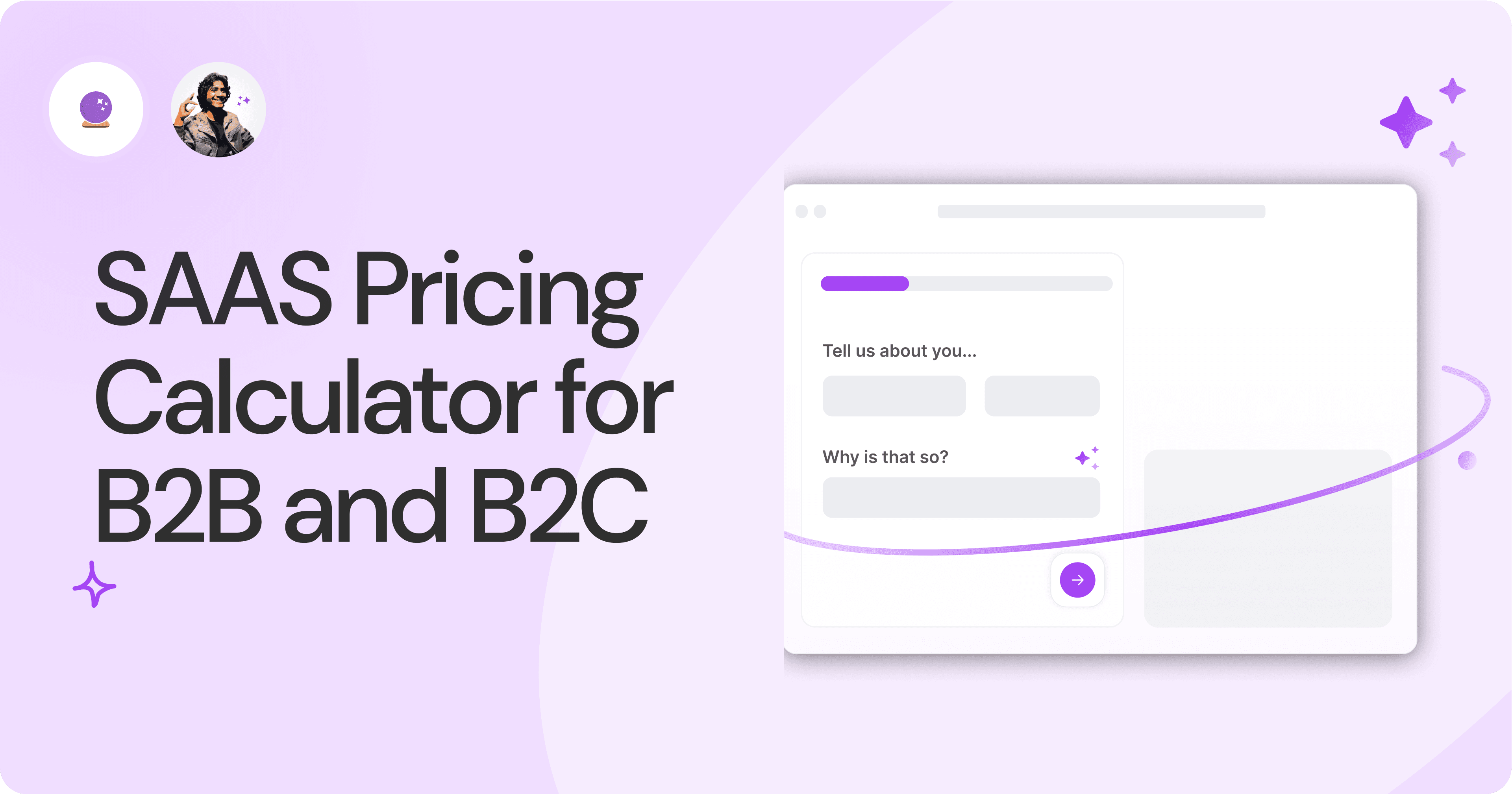
SAAS Pricing Calculators: B2B v B2C Online Forms.
The SaaS pricing calculator is an essential tool for both B2B and B2C SaaS companies. But how do you build it, right? We have you covered.
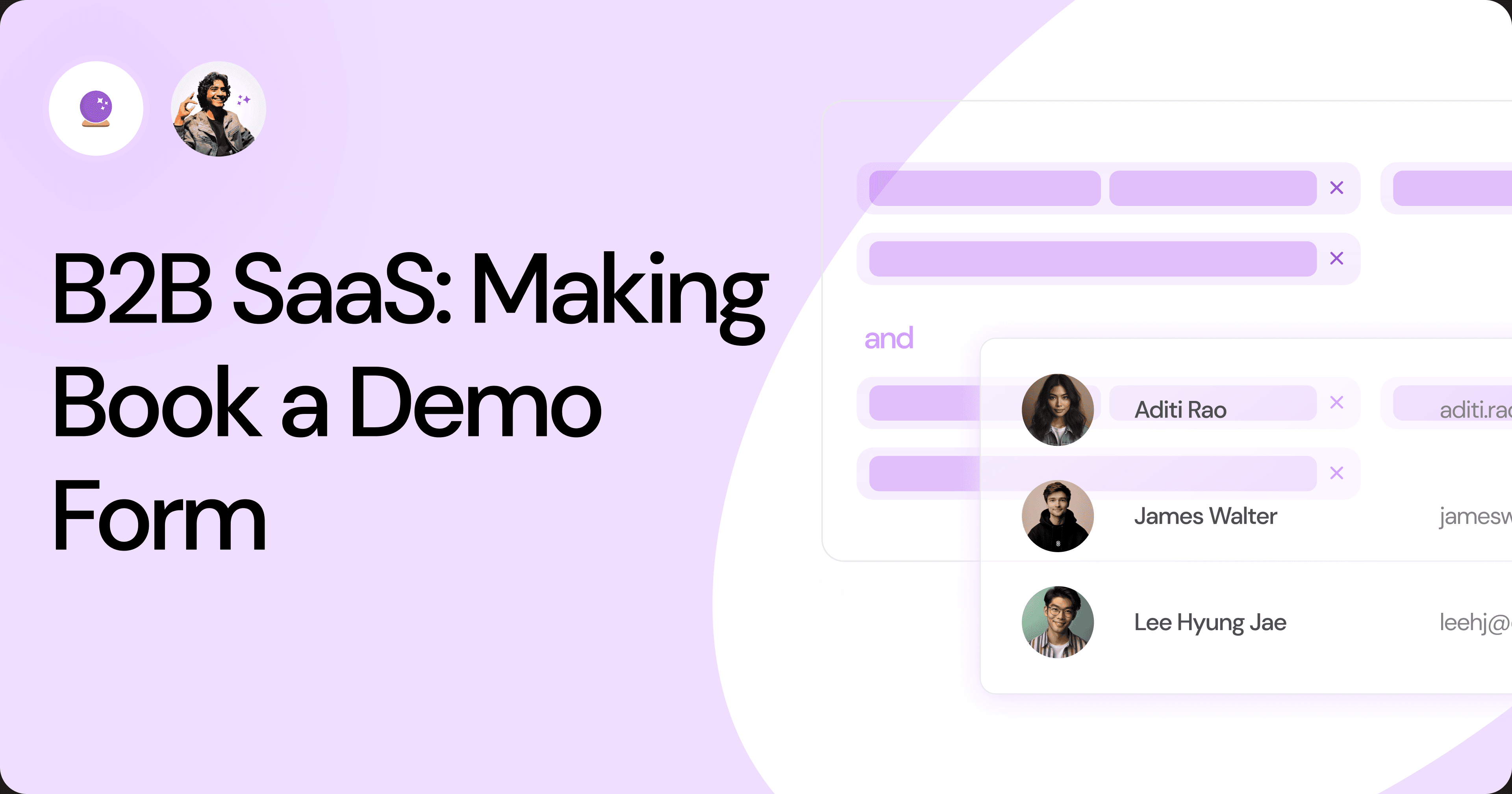
B2B SaaS: Making Book a Demo Form.
Having the perfect book a demo form for B2B SaaS is the first step in capturing leads. There are a few fundamental techniques to get this form right. Read on.

How to Get Started With SaaS Onboarding.
SaaS onboarding is essential for customer onboarding in B2B and B2C SaaS. Let’s understand its fundamentals, including the metrics.
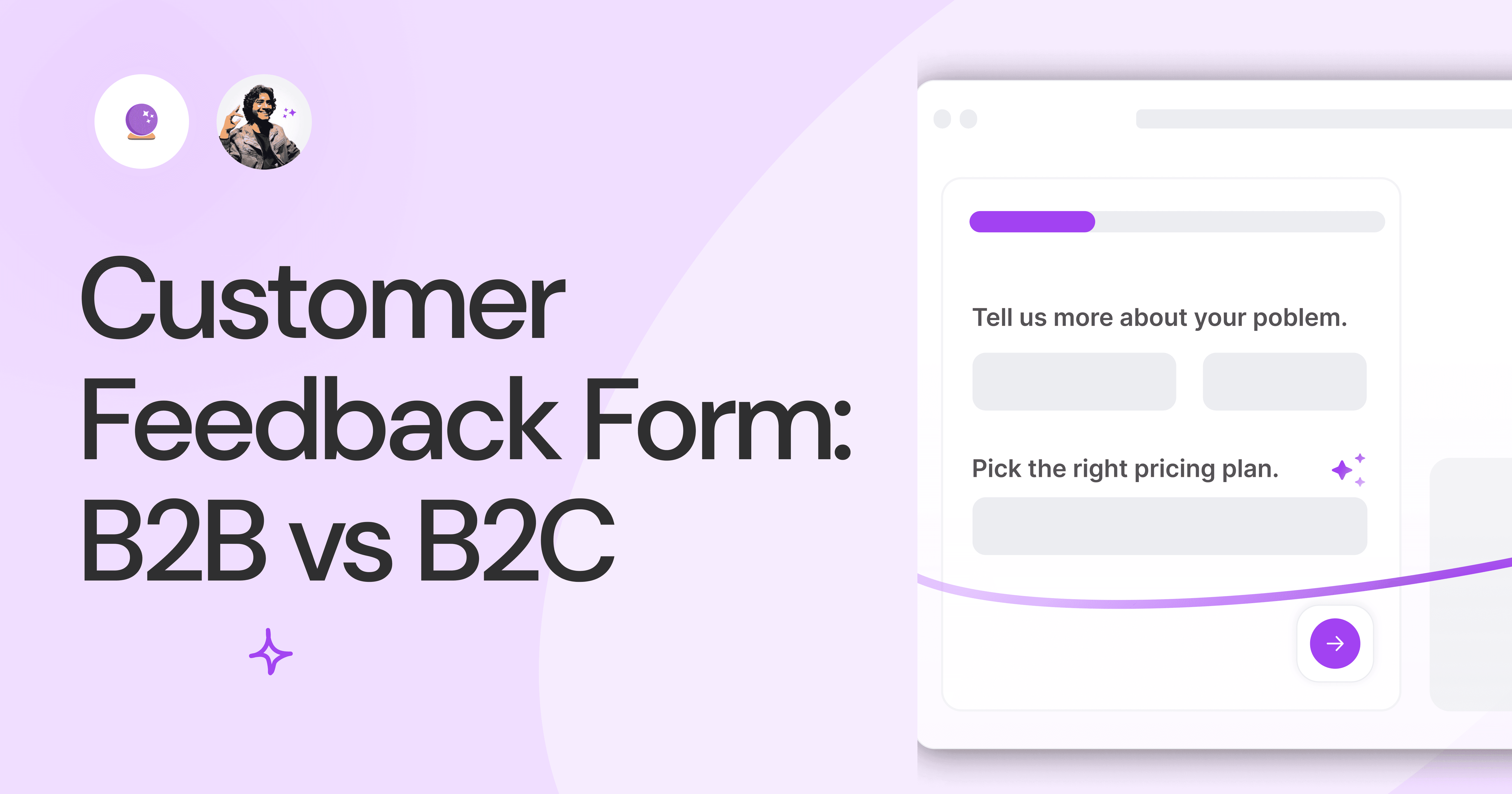
Customer Feedback Form: B2B vs B2C.
Why is customer feedback important? Because it dictates progress on B2B and B2B products and services for the customer to meet their goals.
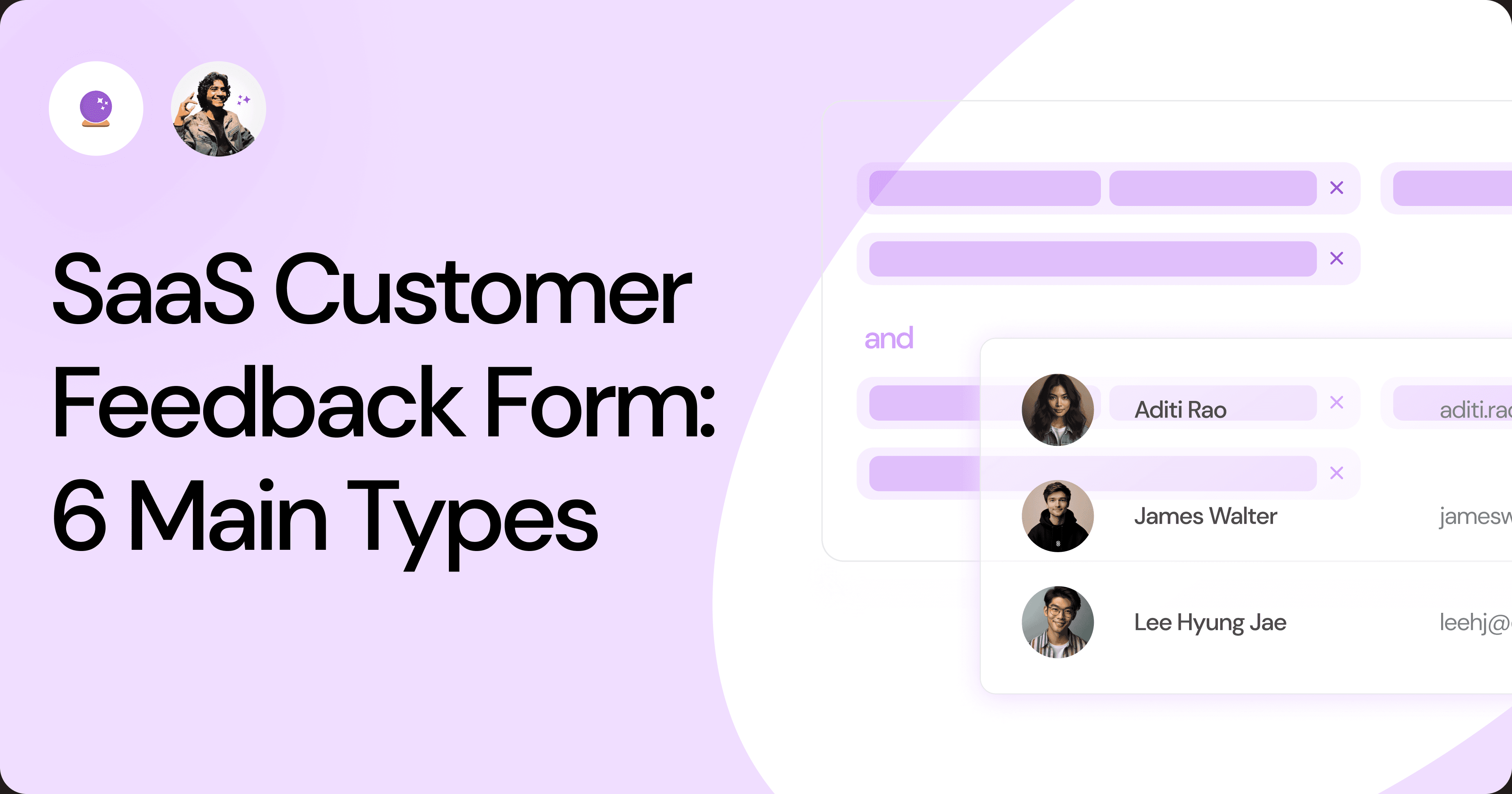
SaaS Customer Feedback Form: 6 Main Types.
As much as SaaS is self-serve, the role of a customer feedback form is highly relevant. There are different types, each with its use case and sections.
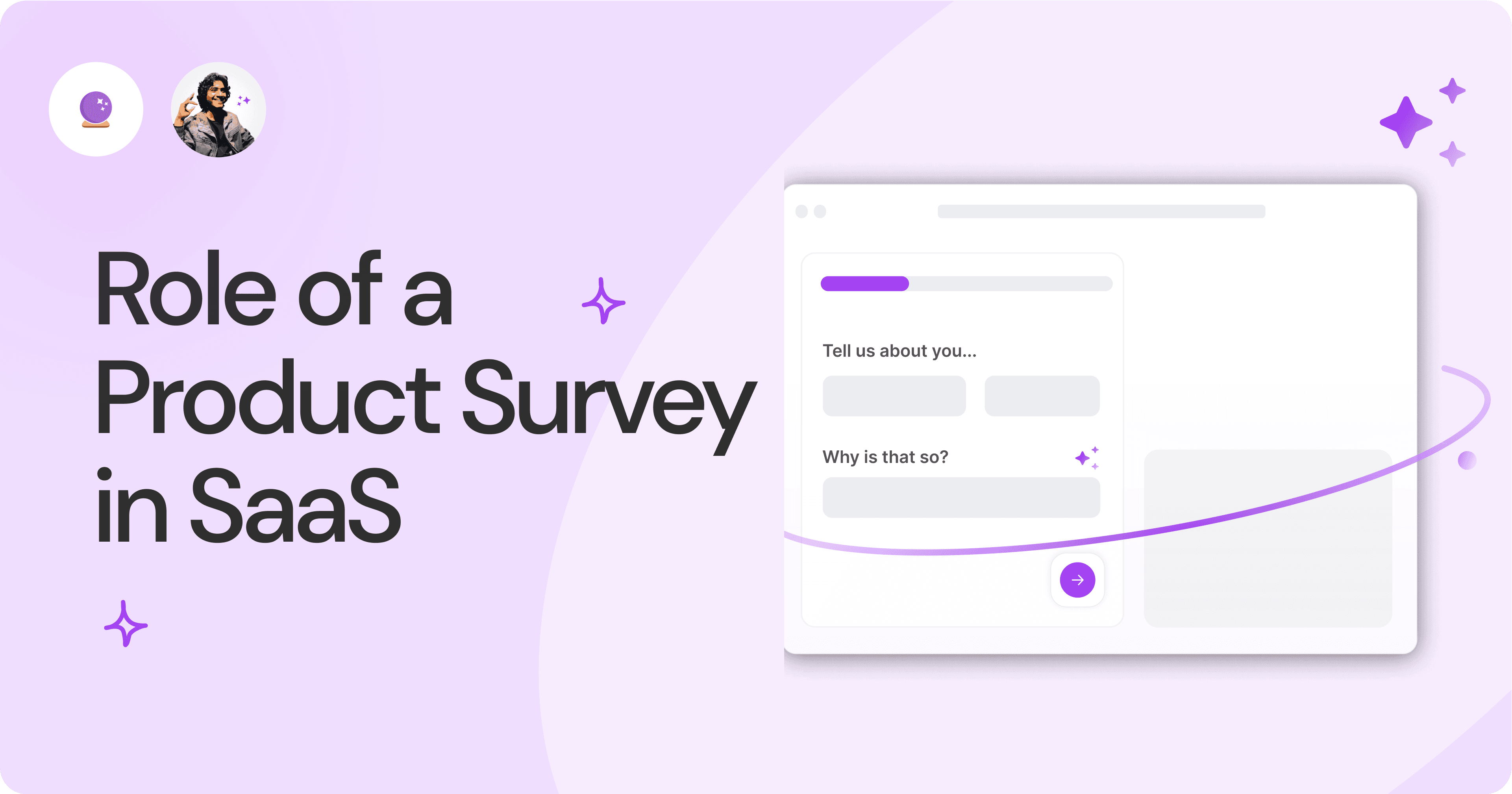
Role of a Product Survey in SaaS.
SaaS is all about creating products for specific use cases. This is where a product survey becomes all the more important to know the user deeply.

Should You Do a SaaS Market Survey?
Every SaaS company wants to grow fast. But without a market survey, growth isn't possible or sustainable. Let’s see how to do a market survey.

SAAS Pricing Calculators: B2B v B2C Online Forms.
The SaaS pricing calculator is an essential tool for both B2B and B2C SaaS companies. But how do you build it, right? We have you covered.

B2B SaaS: Making Book a Demo Form.
Having the perfect book a demo form for B2B SaaS is the first step in capturing leads. There are a few fundamental techniques to get this form right. Read on.

How to Get Started With SaaS Onboarding.
SaaS onboarding is essential for customer onboarding in B2B and B2C SaaS. Let’s understand its fundamentals, including the metrics.

Customer Feedback Form: B2B vs B2C.
Why is customer feedback important? Because it dictates progress on B2B and B2B products and services for the customer to meet their goals.

SaaS Customer Feedback Form: 6 Main Types.
As much as SaaS is self-serve, the role of a customer feedback form is highly relevant. There are different types, each with its use case and sections.

Role of a Product Survey in SaaS.
SaaS is all about creating products for specific use cases. This is where a product survey becomes all the more important to know the user deeply.

Should You Do a SaaS Market Survey?
Every SaaS company wants to grow fast. But without a market survey, growth isn't possible or sustainable. Let’s see how to do a market survey.

SAAS Pricing Calculators: B2B v B2C Online Forms.
The SaaS pricing calculator is an essential tool for both B2B and B2C SaaS companies. But how do you build it, right? We have you covered.

B2B SaaS: Making Book a Demo Form.
Having the perfect book a demo form for B2B SaaS is the first step in capturing leads. There are a few fundamental techniques to get this form right. Read on.

How to Get Started With SaaS Onboarding.
SaaS onboarding is essential for customer onboarding in B2B and B2C SaaS. Let’s understand its fundamentals, including the metrics.

Customer Feedback Form: B2B vs B2C.
Why is customer feedback important? Because it dictates progress on B2B and B2B products and services for the customer to meet their goals.

SaaS Customer Feedback Form: 6 Main Types.
As much as SaaS is self-serve, the role of a customer feedback form is highly relevant. There are different types, each with its use case and sections.

Role of a Product Survey in SaaS.
SaaS is all about creating products for specific use cases. This is where a product survey becomes all the more important to know the user deeply.

Should You Do a SaaS Market Survey?
Every SaaS company wants to grow fast. But without a market survey, growth isn't possible or sustainable. Let’s see how to do a market survey.
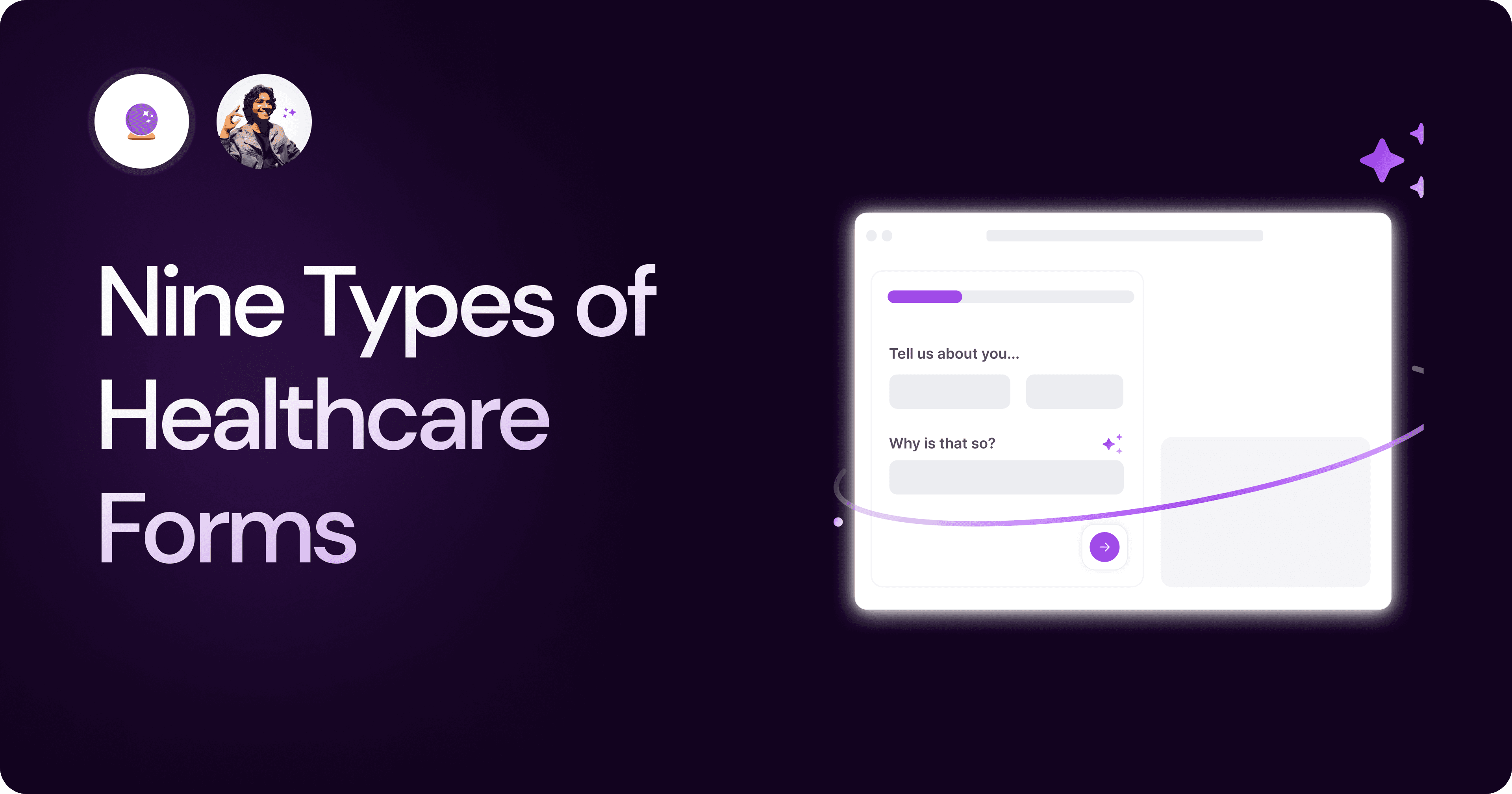
Nine Types of Healthcare and Medical Forms.
Medical forms are a must-have for any healthcare business or practitioner. Learn about the different kinds of medical and healthcare forms.
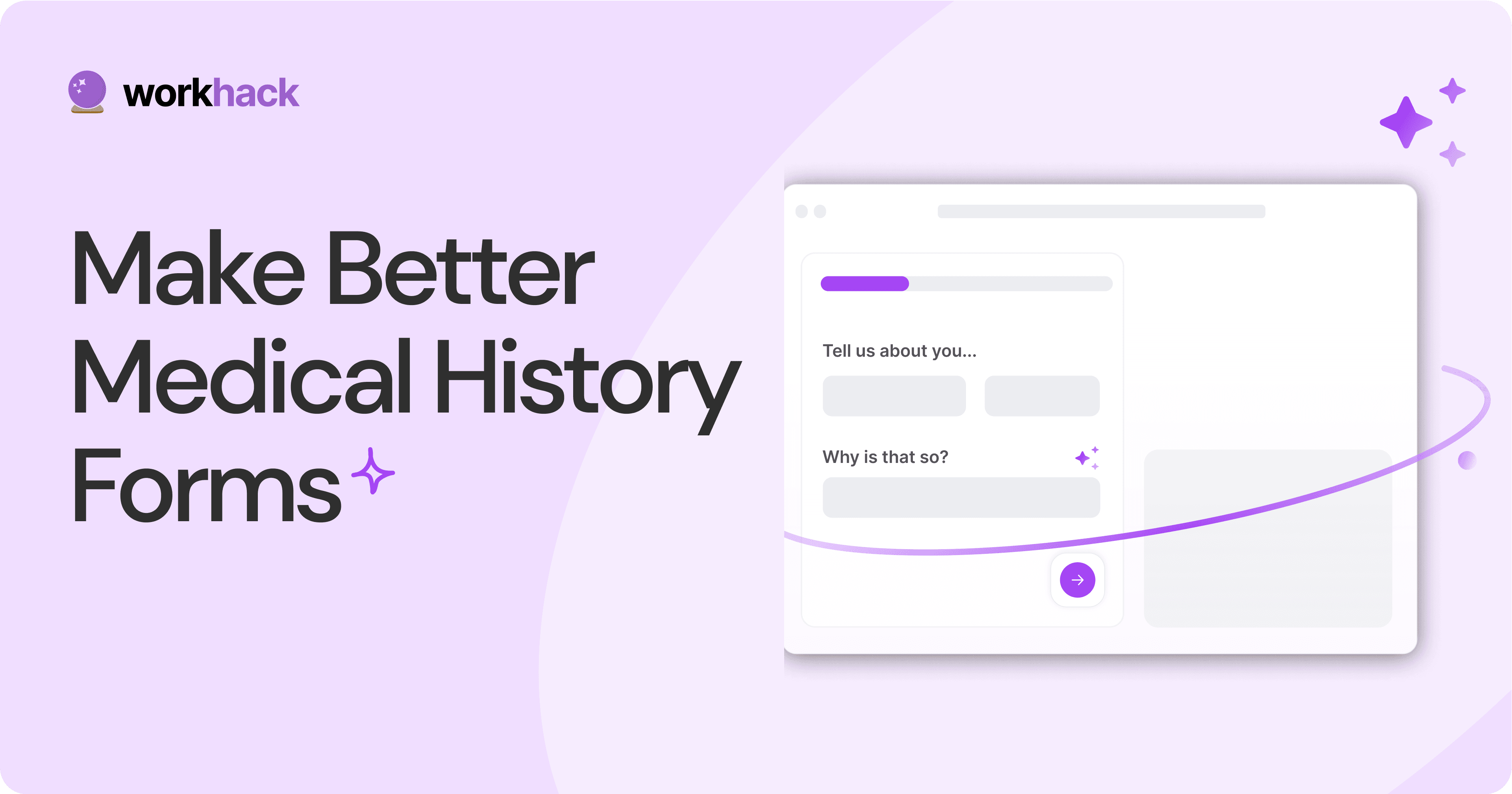
4 Tips for Better Medical History Forms.
Medical history forms are central to patient care, onboarding, and medical administration records. Learn how to make them easier to fill.
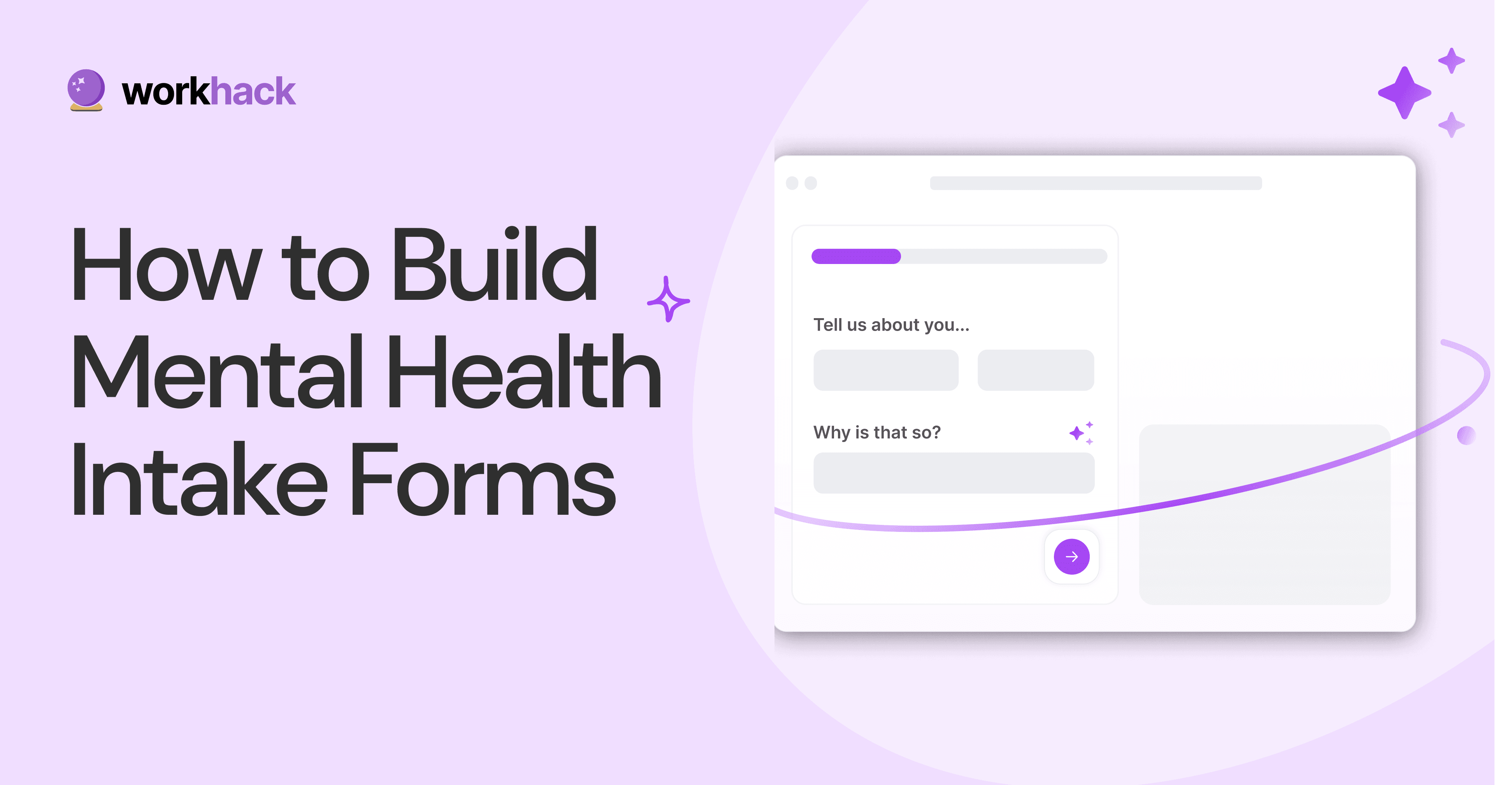
How to Build Mental Health Intake Forms?
Mental health intake forms are not like patient intake forms. Mental health intake forms deal with far more sensitive data and have specific design methods.
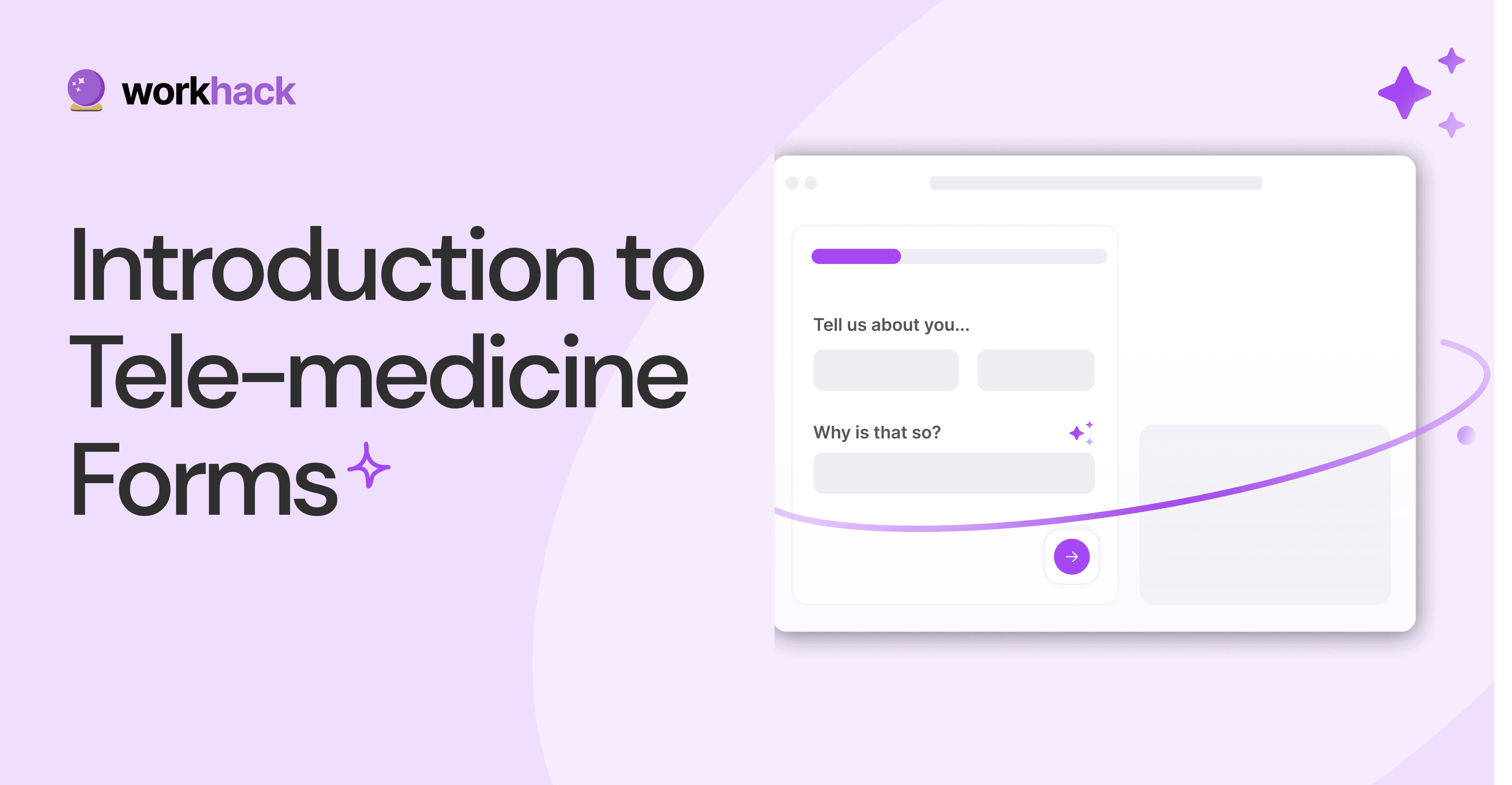
What, Why and How of Telemedicine Forms.
Telemedicine is on the rise and with different form builders out there, which one best suits your needs as a healthcare services provider?
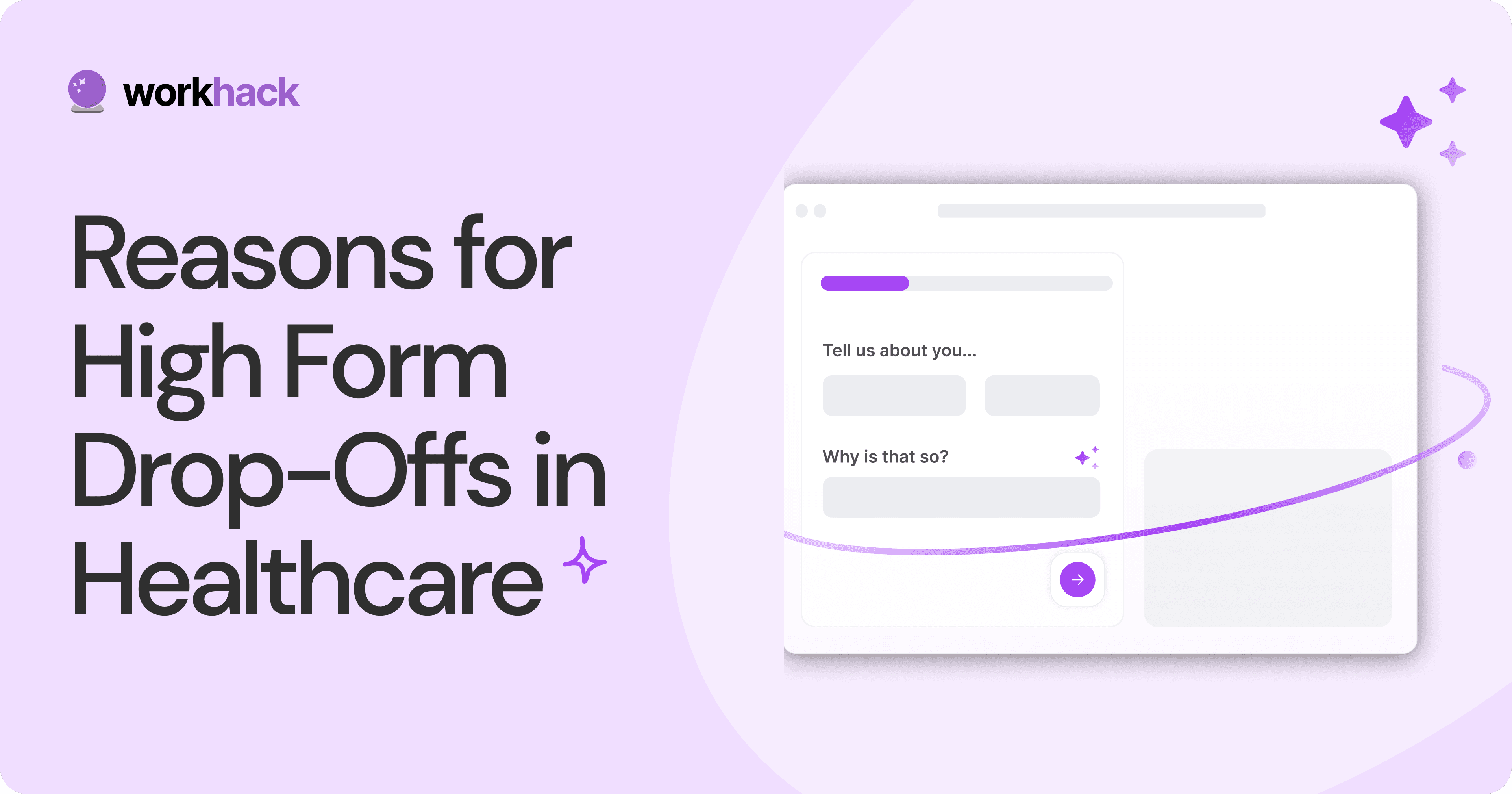
3 Reasons for Major Drop-Offs in Medical Forms.
No matter which healthcare form we pick, there are major drop-off reasons. We shall dive into the top 3 and learn how to resolve them in your next form.
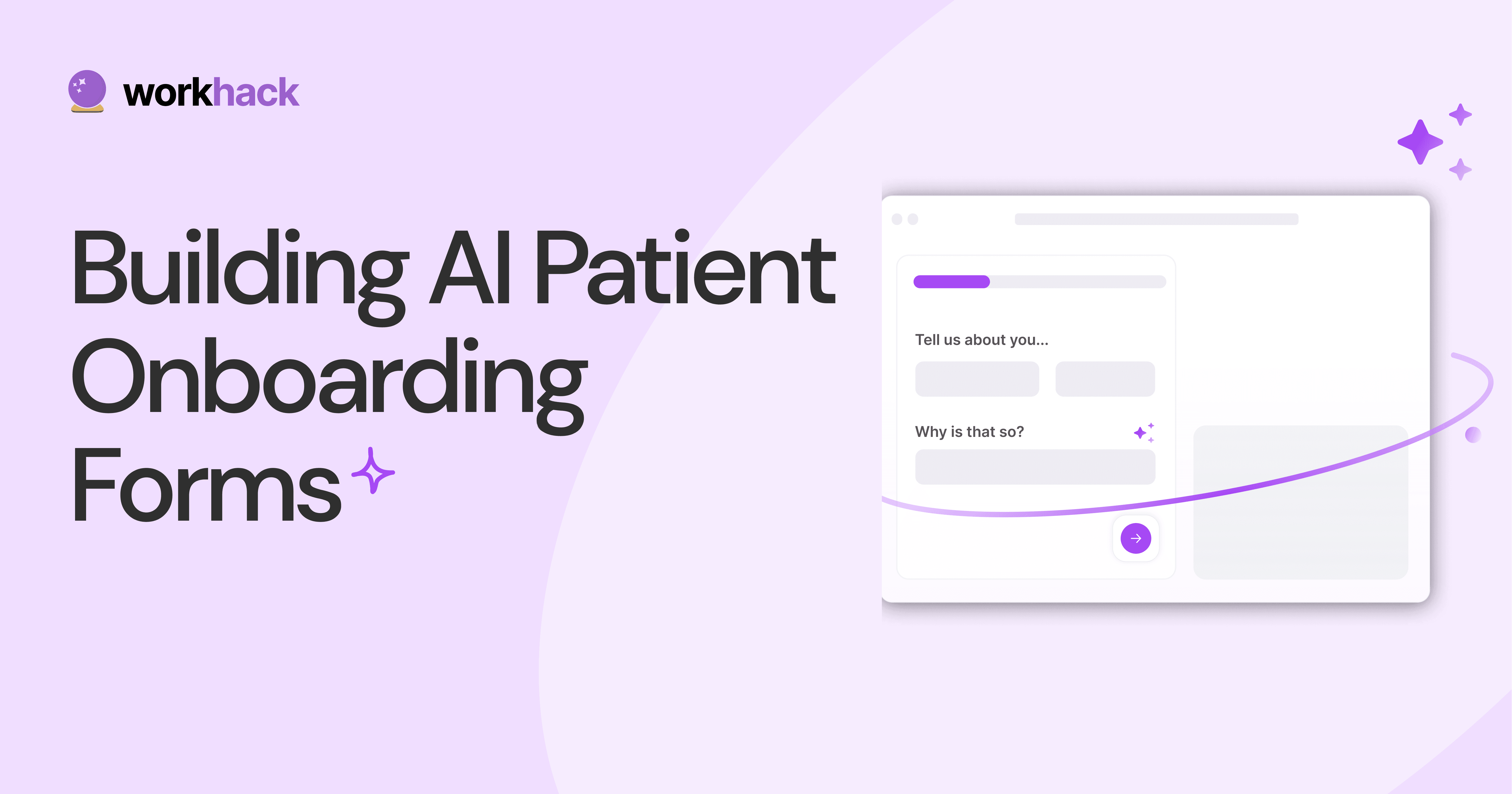
Patient Onboarding Forms - From Click to Clinic.
Patient onboarding forms are the first touchpoint for patients; getting this right for higher conversion rates is a must-have. Learn how to perfect them now.
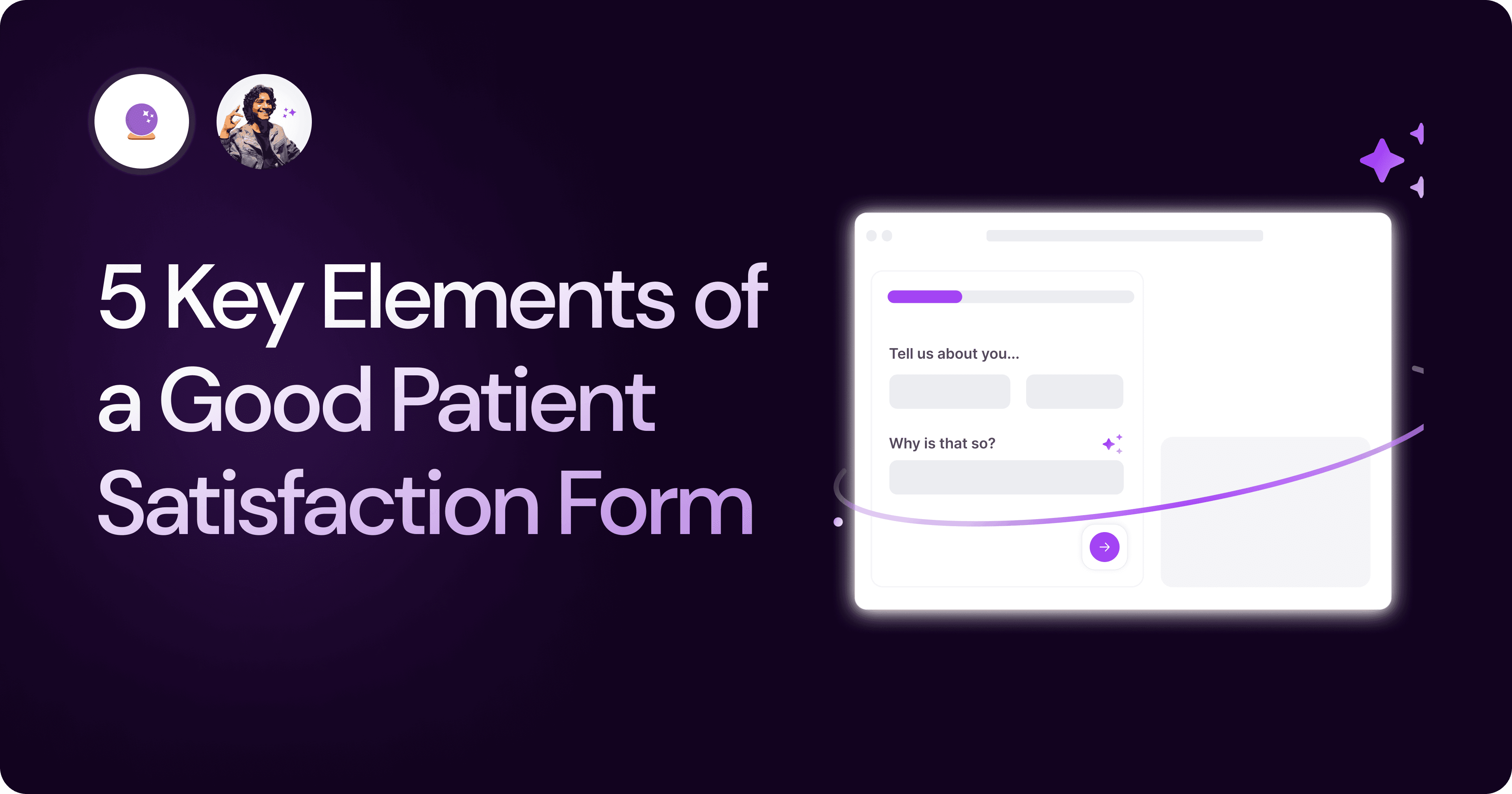
5 Key Parts of a Good Patient Satisfaction Form.
The goal of patient satisfaction surveys is to course-correct the services of a healthcare provider. Patient feedback leads to a culture of patient-centric care.
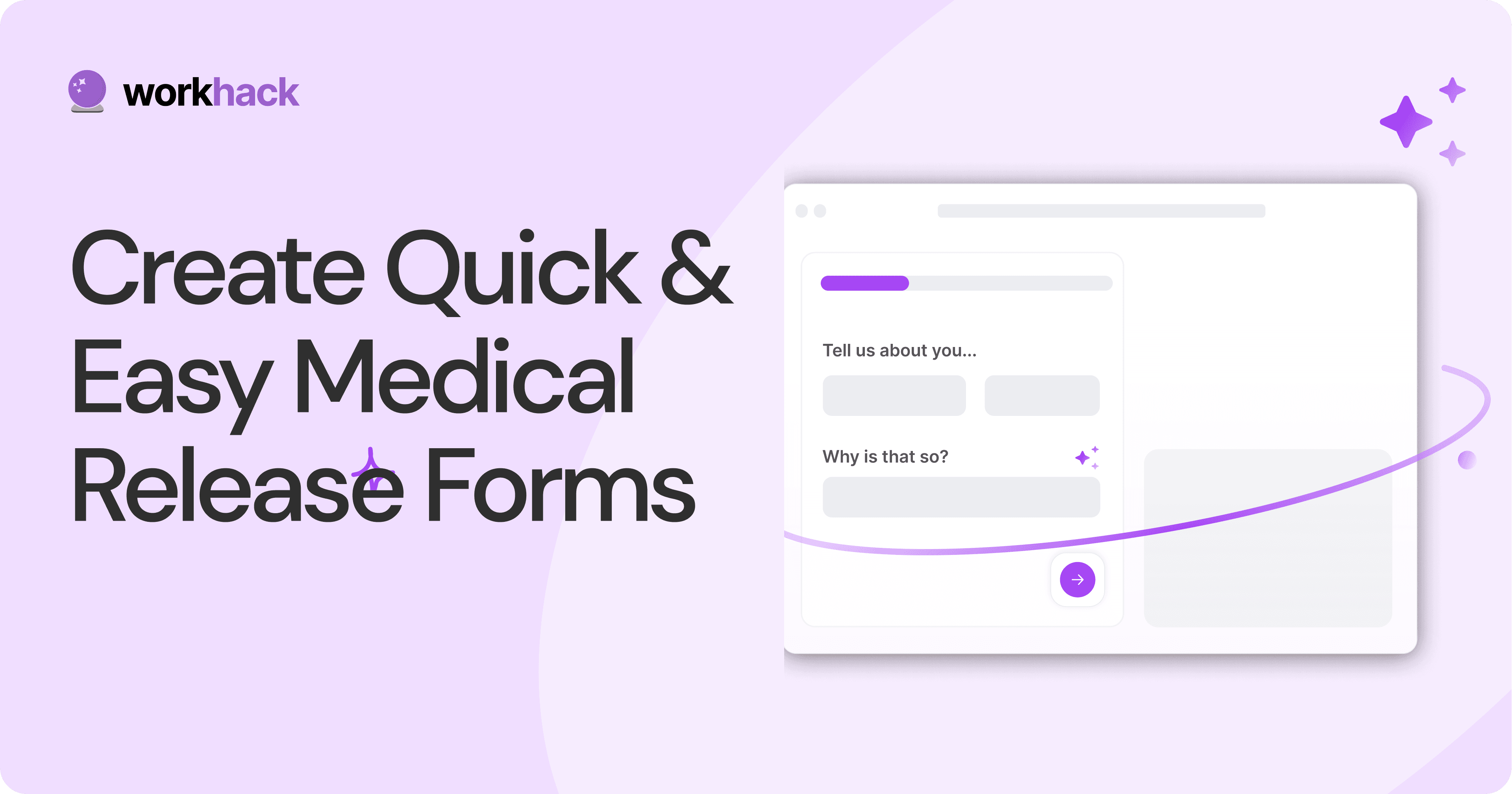
Build Quick and Easy Medical Release Forms.
Every HIPAA-compliant healthcare provider comes across medical release forms that involve details from medical history forms. Can they be shipped fast? Yes.

SAAS Pricing Calculators: B2B v B2C Online Forms.
The SaaS pricing calculator is an essential tool for both B2B and B2C SaaS companies. But how do you build it, right? We have you covered.

B2B SaaS: Making Book a Demo Form.
Having the perfect book a demo form for B2B SaaS is the first step in capturing leads. There are a few fundamental techniques to get this form right. Read on.

How to Get Started With SaaS Onboarding.
SaaS onboarding is essential for customer onboarding in B2B and B2C SaaS. Let’s understand its fundamentals, including the metrics.

Customer Feedback Form: B2B vs B2C.
Why is customer feedback important? Because it dictates progress on B2B and B2B products and services for the customer to meet their goals.

SaaS Customer Feedback Form: 6 Main Types.
As much as SaaS is self-serve, the role of a customer feedback form is highly relevant. There are different types, each with its use case and sections.

Role of a Product Survey in SaaS.
SaaS is all about creating products for specific use cases. This is where a product survey becomes all the more important to know the user deeply.

Should You Do a SaaS Market Survey?
Every SaaS company wants to grow fast. But without a market survey, growth isn't possible or sustainable. Let’s see how to do a market survey.
Subscribe to stay updated.
Subscribe to stay updated.
Subscribe to stay updated.
HC

HC

HC

HC

70+ people from across industries read our emails.
HC

HC

70+ people from across industries read our emails.
HC

HC

HC

70+ people from across industries read our emails.




Bangalore, India / San Francisco, US
WorkHack Inc. 2023
Bangalore, India
San Francisco, US
WorkHack Inc. 2023
WorkHack Inc. 2023
Bangalore, India / San Francisco, US
WorkHack Inc. 2023
Bangalore, India / San Francisco, US



